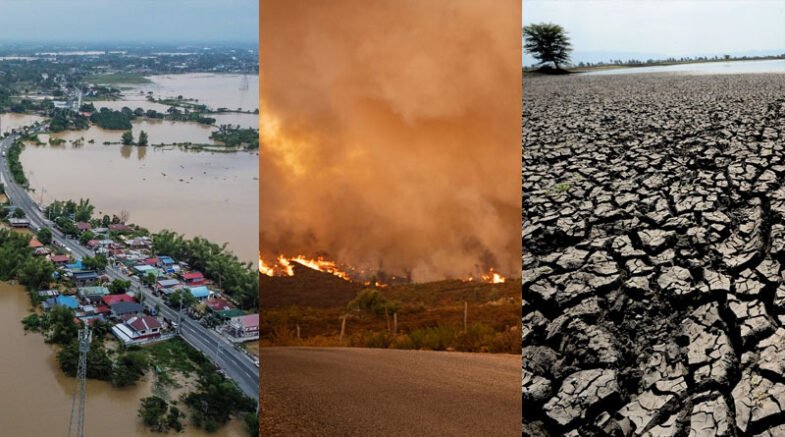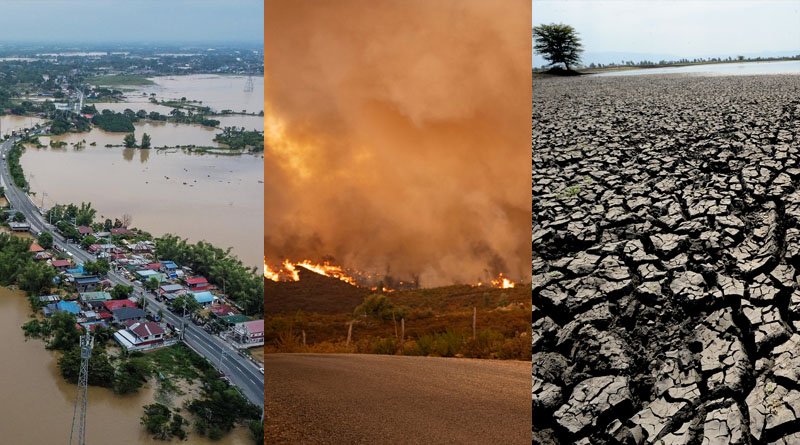EDI of NSPP hosted a two-day policy dialogue on the effect of climate change: Pakistan’s experience with climate-induced disasters on January 25–26, 2023.

The Executive Development Institute (EDI) of the National School of Public Policy (NSPP) hosted a two-day policy dialogue on the effect of climate change: Pakistan’s experience with climate-induced disasters on January 25–26, 2023.
The Executive Development Institute promotes the continuous professional development of personnel in the public and private sectors by organizing a variety of activities such as short trainings, workshops, policy dialogues, seminars, and webinars to raise awareness on timely national issues.
The institute’s dynamism is rooted in its methodology of bringing people from all walks of life from across Pakistan, including the public and private sectors, academia, the social sector, the judiciary, and civil society.
The EDI identifies cutting-edge topics for public and government awareness in order to develop action plans. This policy dialogue is also one of the institute’s efforts to draw the attention of the national community to necessary actions in the aftermath of the country’s massive floods.
Dean EDI, Ahmad Nazir Warraich, formally inaugurated the policy dialogue on behalf of Dr. Ijaz Munir, Rector NSPP, emphasizing the importance of the issue. Climate science, sectoral analysis of climate change and its effect, financing, diplomacy, adaptation and mitigation, climate governance and institutional framework, disaster preparedness and management, and policy actions are among the topics covered.
Guest speakers with domain expertise in climate change were invited from across Pakistan who work in climate-related public and private organizations. Farrukh Iqbal Khan (Pakistani Diplomat), Ms. Ayesha Khan (Founder and Head of Civil Society in Coalition for Climate Change and MGPO), Abid Qaiyum Suleri (CEO, SDPI), Rafay Alam (environmental law expert), Nauman Bashir Bhatti (Pakistani Diplomat), Ahmad Nazir Warraich (Dean ED), and a French expert from INSP France) were among the speakers.
a diverse range of participants, including the establishment division, the press information department, the Punjab Safe City Authority, the energy department, and the Civil Aviation Authority (CAA), the State Bank of Pakistan, the Faisalabad Chamber of Commerce, Sui Northern Gas, the Water and Sanitation Agency (WASA), the University of Peshawar, the University of Education Lahore, the Agha Khan Foundation, Habib Bank Limited, the government of Punjab, and the government of Sindh, among others.
During the dialogue, speakers discussed Pakistan’s high vulnerability as a result of its geographic location.
It was discussed that strengthening institutional mechanisms for building resilience against climate disasters is critical for better preparedness and management planning. Pakistan’s responsibilities include drawing the attention of the international community to fulfil pledges made in international forums.
Although managing financing from international multilateral donors is difficult due to various political dynamics, mobilisation of domestic public and private resources can also help fill gaps in such a scenario.
They stated that limiting the temperature to 1.5 degrees Celsius appears difficult. Furthermore, systemic and sectoral changes can improve the institutional framework with the collaboration of the federal and provincial governments, as well as ministries, line departments, private organisations, donors, and other stakeholders. The importance of having an adaptation plan was stressed, as was the importance of mitigation.
They stated that Pakistan requires a paradigm shift in order to consider climate as an important factor in policy planning and decision-making in order to make the country more resilient to climate disasters.
All of the sessions concluded with a lively round of question and answer sessions, which indicate the high interest of people in arranging such forums to sensitise people on such issues of national importance and where the way forward can be delineated from the expert knowledge of eminent speakers and audience members equally to plan actions.
At the end, Dean EDI Ahmad Nazir Warraich thanked the keynote speaker, Zafar Ali Shah, Federal Secretary of Planning, all other distinguished speakers, and the participants. He also appreciated his team’s hard work.
